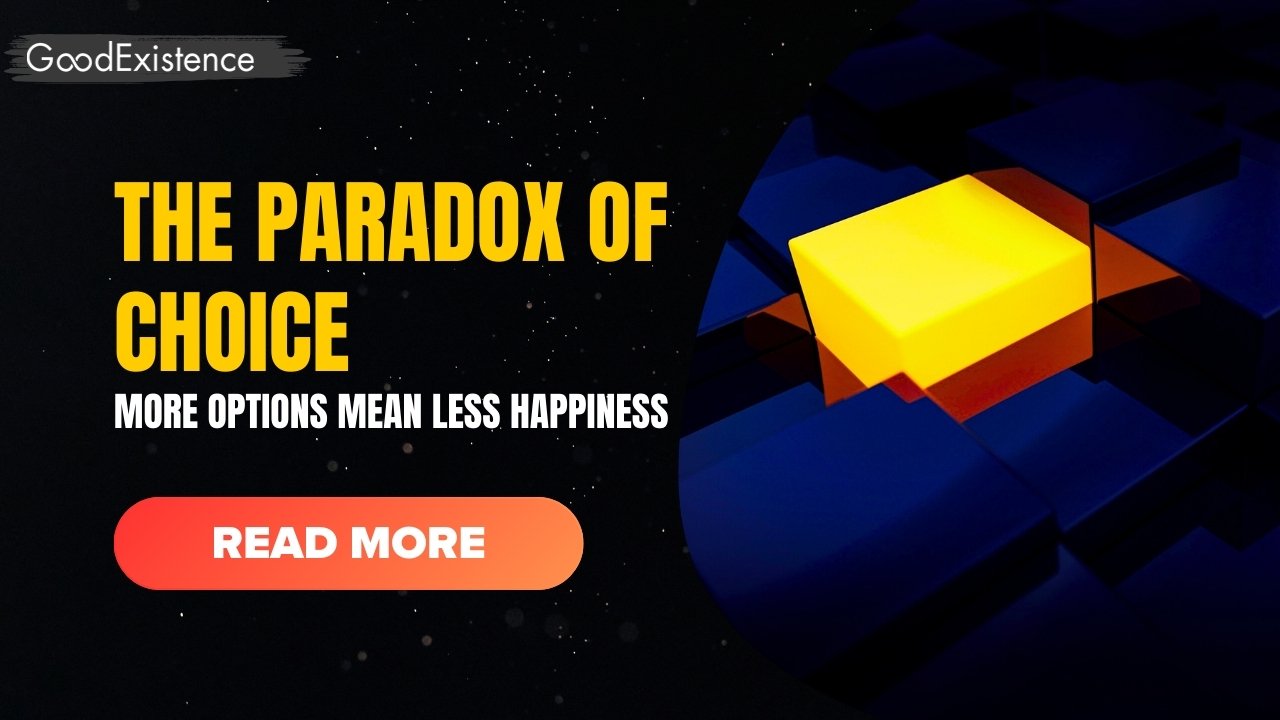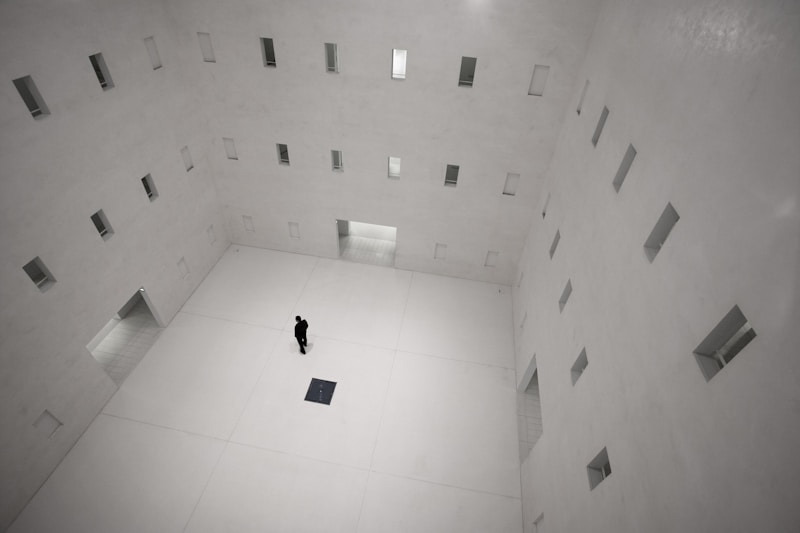We live in a world overflowing with choices. From the seemingly endless aisles of grocery stores to the vast libraries of streaming services, every decision seems fraught with the potential for making the “wrong” one.

This abundance, paradoxically, can lead to a feeling of paralysis and dissatisfaction. This is the paradox of choice, a concept explored by psychologist Barry Schwartz in his book “The Paradox of Choice: Why More Is Less.“
Why More Options Can Be Overwhelming

Imagine standing at a coffee shop with a simple menu of three options: latte, cappuccino, or black coffee. You quickly choose your favorite and enjoy your morning pick-me-up.
Now, picture yourself in a specialty coffee shop with a menu boasting dozens of latte variations, each with its own unique blend of syrups, milk alternatives, and flavorings.
Suddenly, the simple act of choosing a coffee becomes a daunting task. You might spend minutes agonizing over every detail, only to end up feeling less satisfied with your final decision.
This scenario illustrates the core of the paradox of choice. When presented with an overwhelming number of options, we experience:
- Decision fatigue: The more decisions we make, the harder it becomes to evaluate each new option effectively.
- Analysis paralysis: The fear of making the wrong choice can lead to a state of inaction and missed opportunities.
- Increased regret: The abundance of options creates a constant sense of “what if,” leading us to dwell on the possibilities we didn’t choose.
The Downside of Having Too Much Control
Schwartz argues that the illusion of control offered by limitless options can actually decrease our happiness. With so many possibilities, the pressure to make the “perfect” choice becomes immense. This pressure can lead to:
- Lower self-esteem: If we constantly second-guess our decisions, we might start doubting our judgment and abilities.
- Reduced enjoyment: The act of choosing becomes stressful, taking away from the pleasure of the experience itself.
- Social comparison: With endless options readily available online, we’re constantly bombarded with curated portrayals of other people’s “perfect” choices, leading to feelings of inadequacy and spiralling into a comparison trap.
Strategies for Making Choices with Confidence
The paradox of choice isn’t a reason to despair. Here are some tips to navigate an over-abundant world:
- Set boundaries: Don’t feel obligated to explore every single option. Limit your choices to a manageable number and focus on quality over quantity.
- Define your priorities: Know what matters most to you in a given situation. Is it price, convenience, or a specific feature? Focus on options that align with your priorities.
- Embrace imperfection: There’s no such thing as a perfect choice. Accept that every decision involves trade-offs and focus on finding an option that’s “good enough.”
- Celebrate your choices: Once you’ve made a decision, own it! Focus on the positive aspects of your choice and enjoy the experience.
The paradox of choice reminds us that happiness isn’t always found in having more. Sometimes, less truly is more. We can find our way through this big world with more clarity and satisfaction by making deliberate choices and focusing on what really counts.
See also in Mindset
15 Strategies for Building Self-Esteem
15 Techniques for Stress-Free Decision Making
20 Tips for Developing Mental Agility
20 Ways to Strengthen Analysis Skills
15 Ways to Develop Critical Thinking
20 Strategies for Attitude Resilience